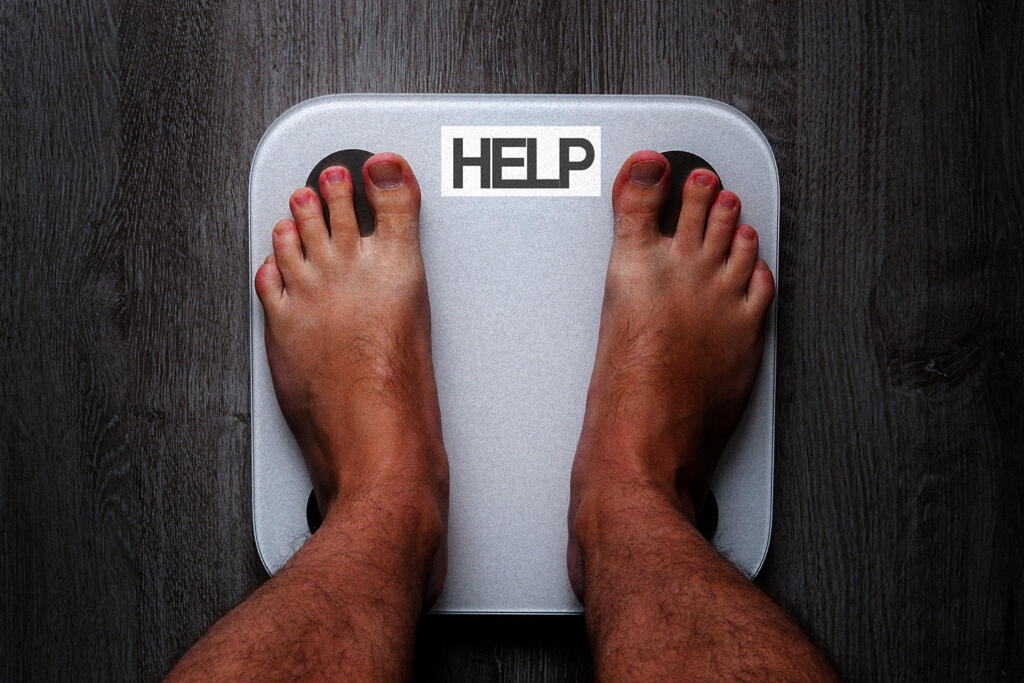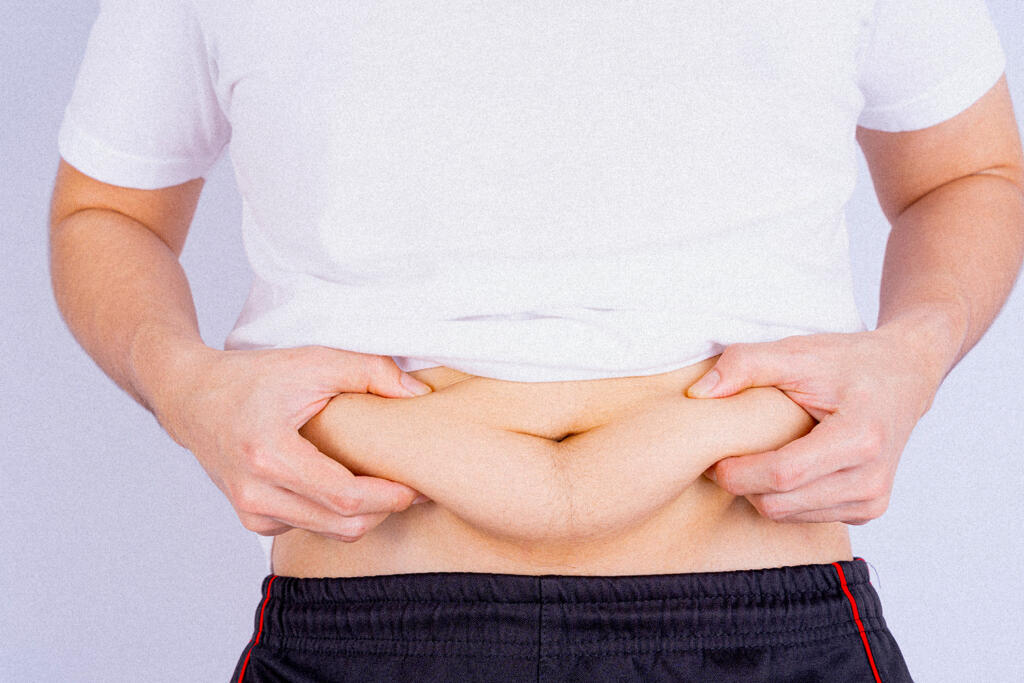Anyone who has ever been on a diet before knows how annoying a weight-loss plateau can be.
You’ve been doing everything right. Watching your calories like a hawk, and switching even your diet coke out with healthy, low-cal water.
Yet somehow, no matter how hard you try, you’re not shifting any more of that body fat.
What’s the big deal?
Well, sometimes, when we workout, eat right, and do all the best things for our bodies over an extended period, our systems get used to the good life.
They start to see healthy living as business as usual, which means that although you hopefully won’t gain any weight, you won’t lose anything either.
There are a lot of problems with hitting a plateau.
Weight loss enthusiasts can lose their motivation, and you may even be tempted to resort to drastic measures, like severely reducing your calories, just so that you can see some results.
So, what do you do?
Don’t worry, with a few quick modifications to your diet and lifestyle; you can get that scale moving in the right direction again.
What is a weight loss plateau, and why does it happen?
Let’s start with the basics.
If you want to eliminate your weight plateau, you need to know where it’s coming from.
For many people, plateaus can be an inevitable part of the weight-loss journey. That’s because, as studies show, our bodies adapt to suit our changing weight.
Medical theories indicate that over time (usually about 6 months of dieting), the body starts to defend itself against further weight loss.
It assumes that you’re losing weight because you don’t have enough food available to you. Your body doesn’t know you’re trimming down for swimming suit season.
Also, let’s face it, after the initial enthusiasm of starting a weight loss routine, some of us can begin to get lazy. We might not stick to our diet and exercise regime as aggressively as we did before.
Some of the most common reasons that you’re dealing with a weight plateau may be:

1. You’re doing the wrong exercise
Great weight loss starts with a good exercise and diet routine.
Of course, exercise comes in many different flavours, from yoga and weight-lifting to cardio.
One common reason for a weight loss plateau is that you’ve been spending too much time and effort on cardio or doing the same exercises every day.
If that’s the case, then your body is probably getting used to a certain kind of exercise.
Switching to HIIT (high-intensity interval training), can help to shock your body out of an exercise and diet plateau.
2. Your diet is too strict or not strict enough
Another reason for a weight loss plateau is that you’re not getting your food intake right.
One possibility is that you’ve been following a healthy diet religiously for too long. If you’re used to constantly restricting your calories, your metabolism is more likely to slow down.
Researchers from Australia even found that people taking regular breaks from their diet lose more weight than those sticking to a regular regime.
You might also be taking on more calories than you realize.
For instance, if you’re not tracking your calories, you may not realise that you’re gaining weight from the liquid calories you consume each day. It’s easy to forget about beer and soda when you’re looking for sources of weight gain.
You could also be forgetting about calories from condiments and sauces too!
An app for tracking calories like MyFitnessPal could help.
3. Your gut could be imbalanced
We already know that your stomach is a little flabby – that’s why you’re trying to lose weight in the first place.
However, there’s more to your belly than your beer podge. You also need to consider your gut bacteria, and the part it plays in a potential diet plateau.
One study found that participants with high levels of good bacteria in their stomachs were more likely to shed weight than their counterparts.
In a similar vein, you might be struggling with things like your regular workout routine because you don’t have the right balance of vitamins and minerals in your system to keep you moving in the right direction.
Ensuring that you have the right gut bacteria, vitamins, and nutrients in your system could be crucial to helping you lose weight.
How to break a weight loss plateau: Top tips
Now that you know why a weight plateau might happen, you can begin to develop a strategy to break through the wall and start making some new progress.
The first thing to remember is that you shouldn’t get discouraged.
A weight-loss plateau can be very frustrating, but throwing in the towel won’t get you anywhere but back on the heavier side of the scale.
Rather than giving up, resolve to go back to the drawing board with your weight loss plan.
Start by:
Refreshing your workout
Our bodies are lazy. Once you get used to a certain exercise routine, your body will find a way to use as little energy as possible to complete it. That means that you stop making measurable progress.
You need to mix things up if you want to shock your body into losing weight again. That could mean moving between periods of fasting and exercise at the same time or adding sprints into your daily marathon training.
Keep your body guessing.

Change your diet
Just as your body becomes efficient with exercise, it starts to work better at using calories too.
If you’ve already lost a significant amount of weight, then your body will probably burn fewer calories per day for energy. The smaller you are, and the less effort you need to put into working out, the fewer calories you need.
Consider reducing your average calorie intake each day and see if that makes a difference.
It may also be worth throwing a day of overeating into your schedule too, so you can keep your stomach from getting too used to the loss of calories.
Rest more often
You’ll rest when you’re dead, right? We’ve all heard that before. Except refusing to look after yourself doesn’t make you a fitter person.
You need regular rest and sleep if you want your muscles to grow and your body to thrive. It’s just basic human biology. Whether you’re exhausted from work, or you’re tired from constant trips to the gym, you need to build some rest into your schedule.
Think about how much time you’re giving yourself to recover from your fitness goals. You might be overdoing it.
Adjust your targets
Our abilities change over time, so our goals need to adjust too. Just because you started by hoping you would one day run a mile, doesn’t mean that goal will stay as a distant dream for long.
Eventually, you’ll be able to run that mile no problem, which means that you need a new dragon to slay. Having a goal gives you a point to visualize in your future. It helps to figure out where you’re going, so you’re more likely to stay on track.
Manage your stress
Have you ever found that you’re more likely to order that extra kebab wrap when you’ve had a rough day at work? Being super stressed can seriously mess with your body and mind.
That’s why it’s so important to learn how to manage the various pressures that you face in life, so you can continue to stretch towards your weight loss goals. It’s up to you how you choose to relax.
A few low-carb pints with mates once a week, a meditation session or a bit of yoga could make all the difference.
You can overcome your weight loss plateau
Shit happens.
People are complicated pieces of machinery, and we have bad weeks sometimes. You might have days when you struggle to stick with your weight loss goals. There might be moments at the gym where you just can’t lift that weight, even though you aced it before.
On days when you feel awesome, you can push yourself harder and accomplish more. On the other hand, when you don’t feel so great, it might be a sign that you need to give yourself a break.
Don’t get lazy and let yourself off the hook all the time but give yourself the understanding that you need.
At the same time, keep in mind that you might need to step away from the scale every once in a while, and focus on a different kind of progress.
For instance, if the number on the scale isn’t dropping, and you’re following all the guidelines we’ve laid out above, maybe you’re replacing fat with muscle.
Body composition changes could mean that it seems like you’re gaining weight when you’re just developing more muscle. Pay attention to not just the numbers on the scale but the inches around your waist too.
Check out our other guides for some more top tips on how to make the most of your diet and exercise routine and remember – don’t lose faith.
You got this.
Blitz yourself better!
This article contains general nutritional tips and advice. However, no diet or exercise program should be started without consulting your physician or other industry professional first. For more information read our full disclaimer here.
Now read these:
—Should you fast to lose weight?
—Get ripped at home with this workout.
—The ultimate workout water bottle.
—How to motivate yourself to workout.
—Lose your dad bod today!
